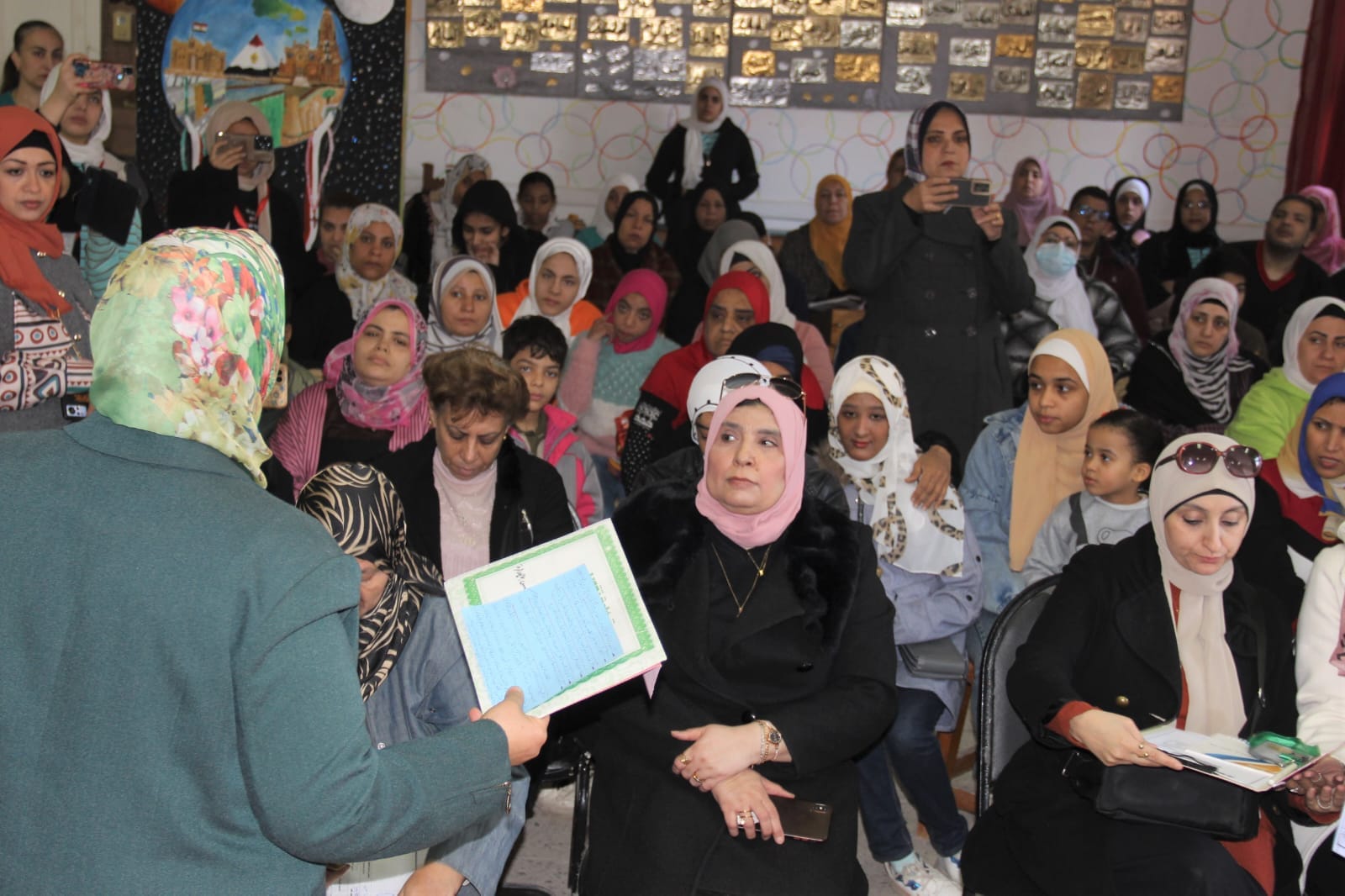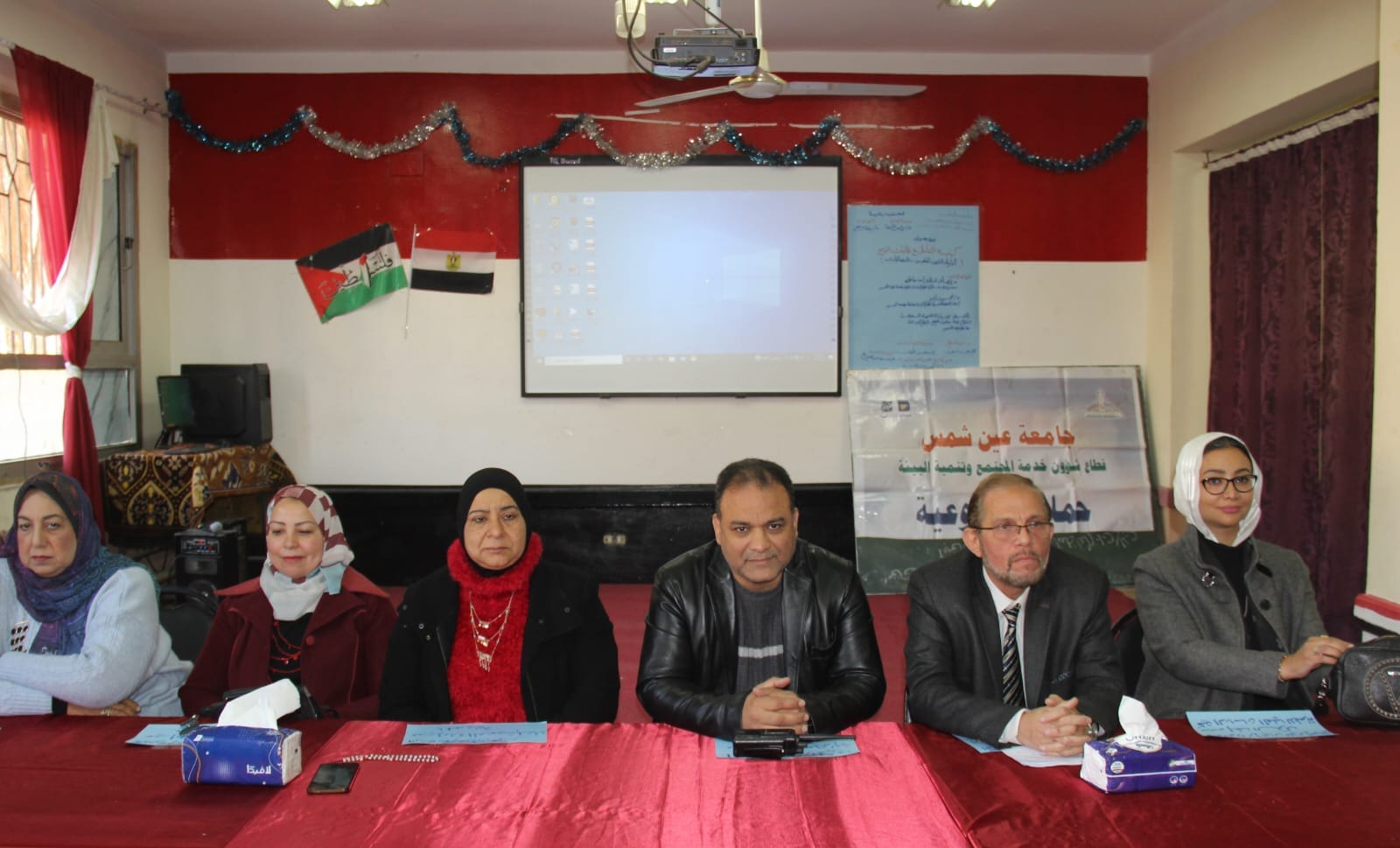Ain Shams University organizes an awareness seminar for parents and psychologists on how to deal with people with special needs
The Community Service and Environmental Development Affairs Sector and the Planning and Environmental Development Department organized an awareness seminar on “How parents and psychologists deal with people with special needs” at Fatima Al-Zahraa Secondary Girls School, within the framework of the community role and the keenness of the Ain Shams University administration to provide community service to all members of the external community and spreading health, cultural and social awareness, under the patronage of Prof. Mohamed Diaa Zein Al-Abedeen, President of the University, Prof. Ghada Farouk, Vice President of the University for Community Service and Environmental Development Affairs, and the general supervision of Major General Hossam El-Sherbiny, Assistant Secretary of the University for Community and Environmental Affairs, and the implementation of the General Administration of Environmental Projects. Department of Planning and Environmental Development.
The lecture was delivered by Prof. Mahmoud Ramez Youssef Hussein, Assistant Professor in the Department of Mental Health at the Faculty of Education, and Dr. Eman Alaa El-Din Ismail, Lecturer in the Department of Medical Studies for Children - Faculty of Graduate Studies for Childhood, in coordination with Mr. Tarek Amer, Director General of the General Administration of Environmental Projects at Ain Shams University, Dr. Nasser El-Gendy, Director General of the Educational Parks Department, Dr. Reda Ibrahim, Undersecretary of the Department, in the presence of Mr. Mervat Omar, Director of the Sustainable Development Department of the Directorate, Dr. Hanan Muhammad, Director of the Educational Services Department of the Department, and a group of teachers and parents (and some Male and female students with special abilities.
 |
 |
Prof. Mahmoud Ramez Youssef Hussein, Assistant Professor in the Department of Mental Health at the Faculty of Education, pointed out the importance of discovering and developing the skills of children with special abilities and dealing with the psychological and social aspects of the family and the right to participate and in order to break barriers towards the outside community, and within the framework of participation and support, constant communication between the family and school psychologists and social workers work together to develop the relationships of the child with disabilities with his normal friends within the community.
He explained the importance of the mother’s acceptance of her child’s condition because it is a fundamental, major and important factor in his growth and moral support, which helps in relieving psychological pressures, training the mother on programs and looking at new services in teaching, in addition to moral and legal support and their rights to education and proper upbringing of children, through accepting and coexisting with their situation, developing skills, and providing the necessary care and constant attention to them.
Dr. Eman Alaa El-Din Ismail, consultant psychiatrist and lecturer at the Department of Medical Studies in the Faculty of Graduate Studies for Childhood, praised the role of Ain Shams University in providing many services, including awareness campaigns, a special center for children with special needs, and providing family counseling training courses for the family to support them in accepting the child and the disability special care for their children through psychological support from specialized doctors, in addition to teaching children the basics of daily life, in addition to teaching crafts and professions, and conducting skill development sessions and communication courses for children.
She explained the types of disabilities, whether motor or mental, and pointed out the stages to which the family is exposed upon learning of the child’s disability, which are the stage of denial, the stage of sadness, the stage of anger, the stage of comprehension, and the stage of acceptance. In conclusion, she sent an awareness message to the family by showing love and permanent psychological support to the children despite their actions are contrary to the customs and traditions they are accustomed to, or academic negligence, and they do not use punishment, threats or intimidation with them.


.svg)




